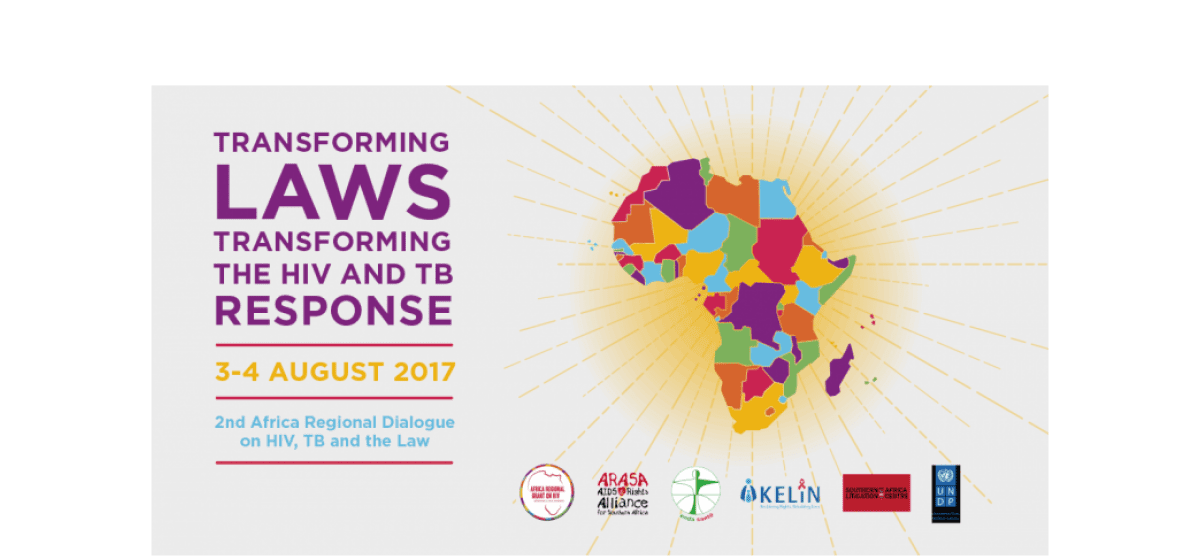Application Deadline: June 12th 2017
- Are you protected from discrimination or unfair treatment because of your HIV status or your TB status? Or does discrimination persist? What has changed, if anything, in the last 5 years?
- As a woman living with HIV, do you still experience violence from partners, stigmatisation, blame, or discrimination from health carers because of your HIV status? Has there been any positive change in laws, practices or the actions of others in the past 5 years?
- Are you better protected from violence and harassment, as a person living with HIV, a person who uses drugs, a transgender person, sex worker, or a man who has sex with men? How, if at all? Does this make it easier for you to use HIV health care services? What problems persist?
- Are you a child or young person affected by HIV? How are you treated, at clinics or at school? Are you able to get health care and social assistance? Has anything changed in the past 5 years to make things easier? What helps and what blocks you from getting the care you need?
- Has there been any positive change in the past 5 years in the way you’re treated by health care workers [or employers]? Are you treated unfairly because of your HIV status, your TB status, your sexual orientation, gender identity or your work? What, if anything, has changed?
- Are cultural norms and practices that put you at risk of HIV being changed, challenged or adapted? How? What works? What more is needed?
- Are you able to access treatment for HIV, AIDS and TB? Is your government doing enough to provide health care? Are intellectual property laws used to increase access to treatment?
- Do you know your rights? Do health care workers and the police know and respect your rights? What’s been done to improve this? How has this helped?The AIDS and Rights Alliance for Southern Africa (ARASA) and UNDP Regional Service Centre for Africa, under the Africa Regional Grant on HIV: Removing Legal Barriers, will host the second Africa Regional Dialogue on HIV, TB and the Law on 3-4 August 2017 in Johannesburg,South Africa.
The first Africa Regional Dialogue on HIV and the Law called for evidence on the impact of laws,policies and practices on the lives of key populations and on universal access to HIV-related health care services. The second Africa Regional Dialogue will continue to identify key HIV, as well as TB, issues of critical concern. However, it will include a strong focus on understanding what has been done to follow up the recommendations from the first Africa Regional Dialogue, and what has worked to bring about change. The Dialogue would like to hear how laws and policies have changed, if at all and whether this changes lives; how education and training have helped to empower populations and to change attitudes, if at all and whether populations are better able to access support and mechanisms to enforce their rights.
The second Africa Regional Dialogue will bring together 140 government and civil society participants from across Africa to discuss progress on the implementation of the findings and recommendations of the Commission on HIV and the Law in the region, highlight issues and ongoing challenges and make strategic suggestions and recommendations on the way forward.
HOW TO SUBMIT
1) Countries covered by this call
You are invited to make a submission if your experience has been in a country within the African Union.
Submissions will be reviewed by a selection committee composed of the Africa Regional Grant on HIV: Removing Legal Barriers’ Sub recipients (ARASA, KELIN, SALC and Enda Santé), the Principal recipient (UNDP) and a number of regional key populations groups. A number of authors of submissions will be invited to Johannesburg to participate in the Second Regional dialogue, which will be conducted with simultaneous translation between English, French and Portuguese.
2) Languages
Submissions are welcome in English, French and Portuguese.
Format of Submissions
All submissions must follow the template for submissions prescribed below.
• Letter format: Submissions should be no more than 3 pages long (maximum 1500 words in the main body of the submission), on A4 size paper. If sent by email, submissions should be in PDF (.pdf), RTF (.rtf) or Word Doc (.doc; docx) format. (Please note if your submission is confidential, only the public version will be shared with the Regional Selection Committee for review).
• Audio/Video format: Submissions in audio or video format should be no more than 10 minutes long. (If your audio or video submission is confidential, please do not mention your name and contact details in the submission. Instead, please include this information in the submission template accompanying your submission.)
• Online Audio/Video submissions: Submissions that cannot be sent via mail or email can be submitted online. They may be uploaded on “youtube.com” or “vimeo.com” using a personal account. Please make sure to secure your video as “private” and send us the link and password to your video
Deadline
12 June 2017
Please note that only 1 submission per individual or organisation will be accepted.
Send your entries to:
• Via Email to: [email protected]
Subject line should be: “Submission Second Africa Regional Dialogue-level of Confidentiality-Key issue(s)”. (e.g. Submission Africa Regional Dialogue-Public- Criminalisation of drug use).
• Via Mail to: ARASA, Unit 203 Saltcircle, 374 Albert Road, Woodstock. Cape Town, South Africa, 7915
For More Information:

